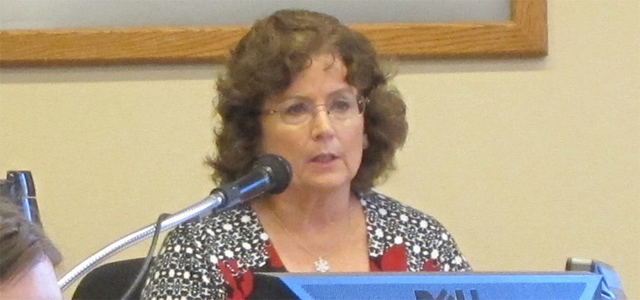News
Jury awards $3M to fired nurse who complained of 'rushing patients through' to save money

A Portland jury on Friday awarded a nurse more than $3 million -- agreeing that she was wrongfully terminated by Legacy Good Samaritan Medical Center after she complained to management that cost-cutting measures were jeopardizing patient care.
Registered nurse Linda Boly said Saturday that she felt vindicated by the verdict. She hopes it sends a "big message" to Legacy Health System that "rushing patients through" the process endangers them.
During the nearly two-week trial in Multnomah County Circuit Court, Legacy contended that it fired Boly in June 2013 for poor job performance. But her attorney, Mick Seidl, said Boly, 59, had a stellar track record during her 34-year career at the Northwest Portland hospital.
"I think Legacy's behavior was shameful," Seidl said. "...People need to trust when they go through the door of Good Samaritan that the nurses have the time to do the work they need to deliver safe patient care. I think there needs to be a top to bottom review, and there needs to be a change."
Maegan Vidal, a Legacy spokeswoman, said Saturday that Legacy doesn't agree with the verdict. She declined further comment.
Seidl said Legacy managers all the way up to the top were getting bonuses for staying within budget. In 2013, the year Boly was fired, Legacy CEO Dr. George Brown received a $340,000 bonus, on top of a base salary of about $960,000, according to Legacy's tax records.
Meanwhile, Legacy Health System -- which includes Legacy Good Samaritan, Legacy Emanuel Medical Center in North Portland, Legacy Mount Hood Medical Center in Gresham and others -- was working on overdrive to rein in its biggest expense: its staff, Seidl said.
In late 2011, Legacy announced plans to reduce its workforce by 400 employees.
Around that time, hospital managers also were trying to reduce payroll on the nursing staff, and Boly was a prime target because she was the highest paid nurse in her unit with $88,000 in annual wages, Seidl said.
In addition, the hospital started instituting quotas, which dictated the amount of time that nurses had to complete various procedures, Seidl said.
From December 2012 to June 2013, Boly was written up three times for failing to meet productivity quotas and for "working off of the clock" by completing chart work at the end of the day, Seidl said. Boly contended that she was being singled out -- disciplined when other nurses weren't when they didn't meet quotas or they worked off the clock.
Boly testified that her manager chalked up instances when she didn't meet the day's quota to her age. "As we get older we all slow down," Boly said her manager told her. Boly, on the other hand, said she might spend more time with a patient than the quota allowed if the patient's needs required the extra time.
Legacy cited what it characterized as examples of poor nursing. In one, a former colleague described how she thought Boly ignored a patient, whose blood oxygen level was low, while Boly worked at a computer for about five minutes.
Boly, on the other hand, told jurors that she accepted the other nurse's offer to help the patient -- because Boly was waiting for another patient, who used a walker and might need help with just a moment's notice, to exit the restroom.
"The jury found those were not the real reasons" she was fired, Seidl said.
Seidl also argued that Boly was deemed "a troublemaker" by management starting in 2005, when she started working to pass Oregon's Nurse Staffing Law, which was designed to give nurses more influence over decisions that might affect patient care. Boly testified before the state Legislature twice -- using real-life examples from her job at Good Samaritan -- and that riled management.
At the time Boly was fired, she was working as a pre-admission nurse for patients who would soon arrive at the hospital for day procedures such as cataract surgeries and colonoscopies.
A 12-person jury awarded Boly $916,000 in lost wages up until a retirement age of 67, $625,000 for emotional distress and $1.5 million in punitive damages. Under Oregon law, 70 percent of the $1.5 million in punitive damages will go to the state.
On top of that, Legacy will be ordered to pay Boly's attorney's fees, which Seidl estimates at about $500,000.
Boly is now a nurse at Providence St. Vincent Medical Center.
Original post: http://www.oregonlive.com/portland/index.ssf/2015/09/jury_awards_3_million_to_legac.html